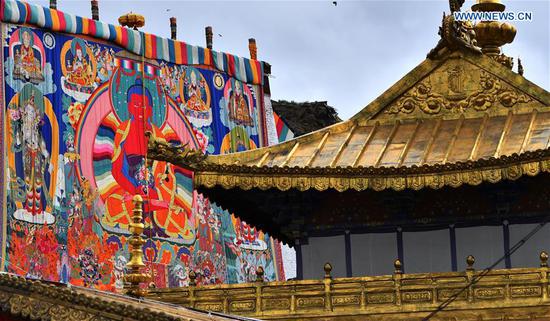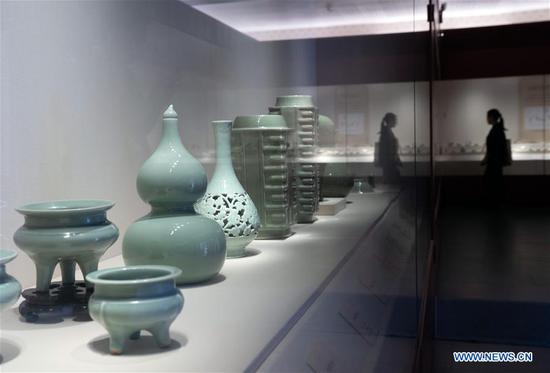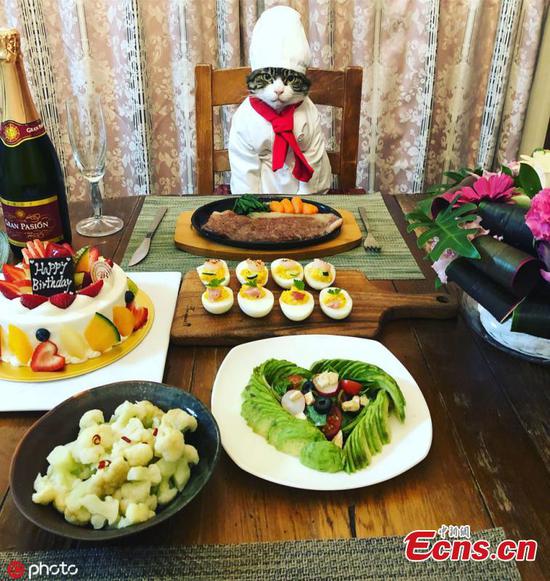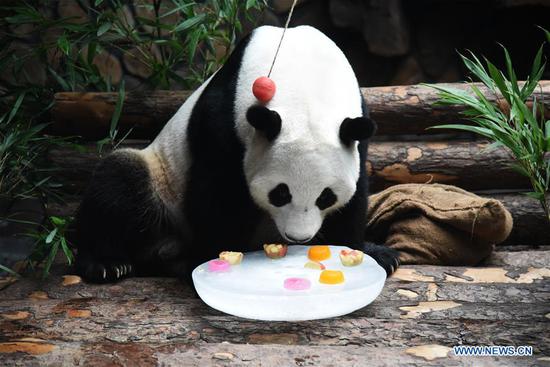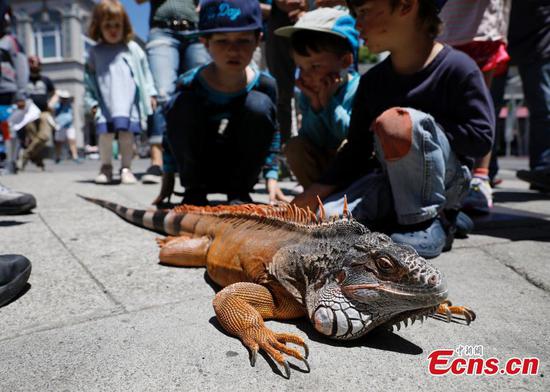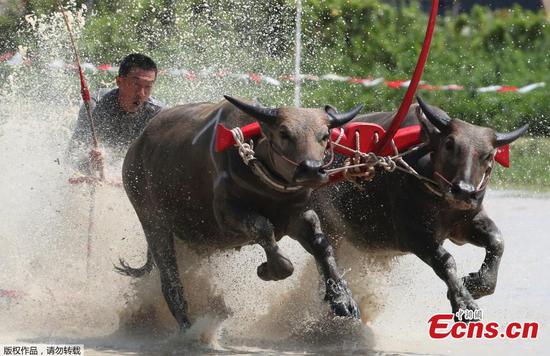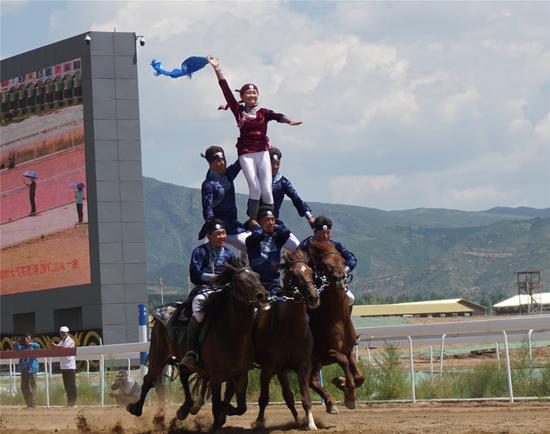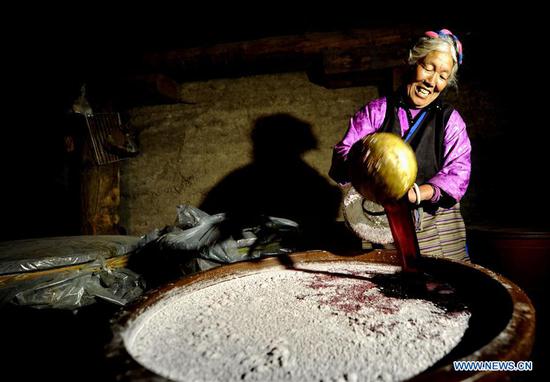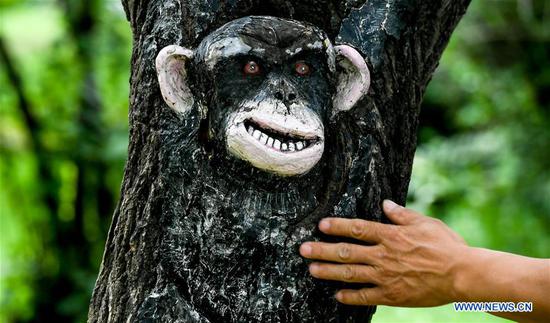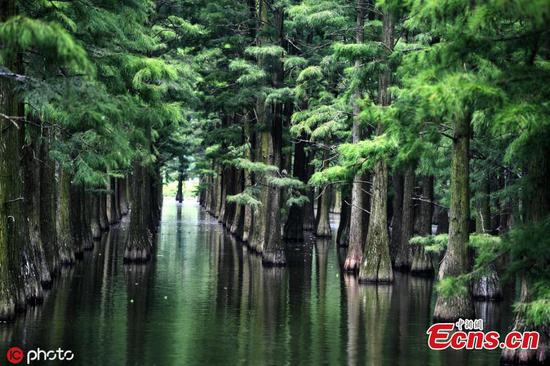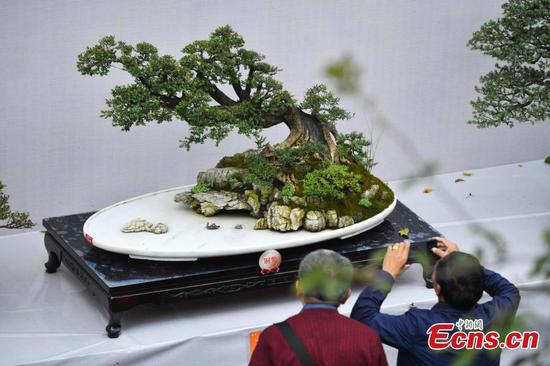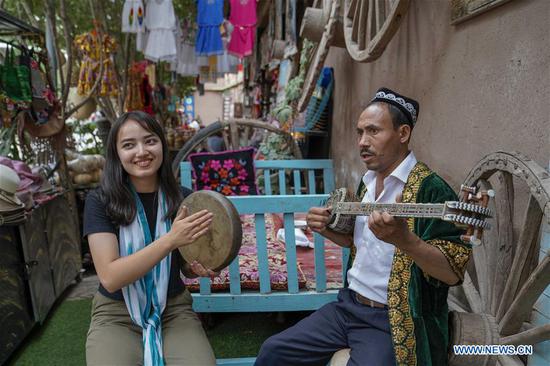The former residence of ancient Chinese poet Su Dongpo has seen a bevy of new guests -- squirrels, attracted not by the poet's brilliant talent but by his home's mouth-watering lychees.
Located in the city of Meishan, southwest China's Sichuan Province, the memorial temple of the Su Family, or San Su Ci, is the former residence of Su Xun and his two sons Su Zhe and Su Shi (also known as Su Dongpo), three famous litterateurs of the Northern Song Dynasty (960-1127).
Lychee was favored by Su Dongpo who even wrote poems to show his love for the fruit. According to Lin Xiaoping, a staff member with the memorial temple, there was a 900-year-old lychee tree in the residence, which is said to have been planted by Su Dongpo himself.
The tree was alive as late as the 1980s, occasionally producing its famous fruit, but by the 1990s, it died of disease. Later, the workers dug up the stumps of the dead tree and displayed the specimens.
In 2007, they planted a new lychee tree in the original spot to commemorate Su Dongpo. This year it has a bumper crop with plump and large lychees, which will be ripe by mid-July.
The temple had planned to hold a memorial event, inviting citizens to taste the lychees in the ancient poet's home for free.
Unexpectedly however, from the beginning of this month, the ripening lychees hanging on the tree began to disappear.
"At first, I noticed some lychee peels scattered under the tree. I thought they must have been picked and eaten by some tourists," said cleaner Liang Xiu.
So the staff in the temple kept close watch on the tree, and despite finding that no visitors had picked the fruits, the lychee peels on the ground grew more and more.
The mystery continued until one day, they spotted a dozen agile squirrels leap from the old house of the Su family to the tree, pick lychees with their paws and then gnaw away hungrily.
At first the "thieves" made a quick escape with stolen lychees gripped in their mouths. But later, emboldened, they began to show a preference for eating rather than taking away, brazenly enjoying the fruit in the tree's branches despite the best efforts of bamboo-wielding staff.
Torn between the need to protect both the squirrels and the precious fruit, the staff turned to the public for possible solutions.
Some suggested setting traps around the tree with apples as bait, but the squirrels were not fooled.
Others came up with an idea of providing other food for the squirrels to feed on, so that they might leave the lychees alone, however staff gave up on the idea, fearing it would only attract more squirrels.
Ultimately however, staff were convinced that the arrival of the squirrels indicated the success of the local environmental protection initiative, and that their presence should be celebrated, rather than cursed.
According to the Dongpo District Forest Bureau, in recent years, the district has invested 290 million yuan (42.15 million U.S. dollars) in afforestation with the new green area reaching 70 square kilometers.
By 2019, the forest coverage rate in the district will increase to more than 41.5 percent and the urban green coverage rate will record 51 percent.
Now the squirrels have become a new feature of the memorial temple, attracting crowds of visitors, though Su Dongpo's beloved lychees may have seen better days.











